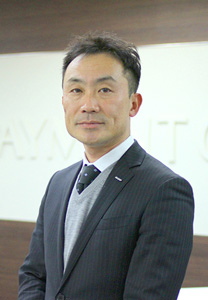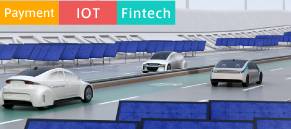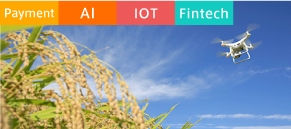I want to know now
The forefront of "cashless society" that changes our lifestyle
From the article published on February 27, 2018 in Mynavi News
Original article: https://news.mynavi.jp/kikaku/20180227-586824/
The times are cashless. Cashless society has become a global trend so much that you can hear such a secret word. In addition to using online shopping, credit cards, and electronic money, a new wave of cashless society is rushing around the world, and the trend is expected to accelerate in Japan as well. This cashless society has the power to change our lives.

Are you still spending cash?
What is the change brought about by cashless society?
Cashless has the image of a new technology, but in reality, many people are already living with payment payment is also a quick touch to the cash register with a card or smartphone when you get on the train or shop at a convenience store. We are already living a "cashless" life with credit cards and electronic money.
This shift to cashless society has brought about not only "no cash" but also "lifestyle changes".
"Sharing Economy" -From "Ownership" to "Sharing"
Lifestyles that change with cashless society-One example of this is the "sharing economy."
The sharing economy, which provides various topics such as the ride sharing service "Uber" and the private lodging service "Airbnb", is assets, goods, time, information, etc. with individuals who want to use it. That's right. The spread and evolution of the Internet and smartphones has made it possible to quickly and easily match the individuals who provide them with those who seek them, which has led to the realization of the sharing economy.
Sharing economy services such as flea market apps are becoming more familiar in Japan as well, but here are some examples from overseas.
One of them is a service to share bicycles, which is currently booming in China. From rental reservations to returns and payment, it's easy to complete with a smartphone app, and it has gained a large number of users.

Sharing economy services are available not only in bicycles but also in other fields. BORO, a clothing sharing service born in Canada, is not a rental service by companies, but a service that allows you to rent and borrow personally owned clothes, bags, and accessories. revenue by renting out clothes that they don't use every day, such as luxury dresses bought for weddings and parties. The clothes that were sleeping become an assets

There are also unique efforts to share the abilities of individuals rather than things. One example is "Task Rabbit," which provides the knowledge and labor force that has appeared in the United States. In Japan as well, there are share services such as housekeeping services, and many transactions between individuals are appearing.

Supporting such a sharing economy is the payment between individuals and the ability to secure credit, and the realization of this is "cashless society."
New Bank Shape Smartphone App ✕ The Future Created by Banks
As cashless society progresses, major changes are occurring in banks that handle large amounts of money. Until now, when withdrawing cash, it was assumed that it would be withdrawn at an ATM, but some banks have started services that link smartphone apps (hereinafter referred to as smartphone apps) with bank accounts.
The flow of money that changes around smartphones
Banking services in China are also advancing the method of using a smartphone app to read a two-dimensional bar code and payment Similar services are appearing in Japan, and if you have a smartphone, you can make cashless payment without having to have a credit card or debit card.
In these smartphone payment that is popular, from the reservation payment can be in one stroke through transmural on the smartphone to, there is no need to take out a wallet in the meantime. You don't need cash to payment for your daily life. Since it is directly connected to a bank account, even those who do not have or do not want to use a credit card payment and expect an increase in users.
In addition, since deposit and withdrawal information is aggregated in the smartphone app, it will be possible to automatically add income and expenditure and visualize assets payment the way you interact with banks will change to a more convenient way.
The latest overseas banking situation where cashless progresses with FinTech
Linking bank accounts and smartphone apps is being promoted in books today, but looking at the world, banks in the Nordic countries of Sweden, Norway, and Denmark are becoming more cashless.

Originally, card payment were widespread, and the ownership rate of bank accounts was high, so there was a background that made it easy to become cashless, but in Denmark as an example, a policy to reduce cash circulation. Bank branches that do not handle cash have also appeared, and the decrease in the amount of cash handled and the number of ATMs installed in the city has led to a significant cost reduction, which is pushing for cashless society. ing. By actually reducing the circulation of cash, the number of crimes such as theft and theft is also decreasing.
In addition, there are many FinTech start-ups in the Nordic countries with government and bank support. It is said that these companies are considering expanding into the United States and Asia as well as Northern Europe and Europe. In the future, new trends may emerge from these start-up companies.
Currently, the cashless payment rate in Japan is about 18%. What do you think of this number? payment rate in the world, Japan is very low compared to the world, with about 46% in the United States, about 64% in the United Kingdom, and about 99% in South Korea. The Government of Japan aims to support payment at major facilities in metropolitan areas in preparation for the 2020 Olympics and Paralympics, and aims to raise the ratio of payment It is said.

With cashless payments, not only the form of money but also our lifestyle will change to a more convenient and convenient form.
By the way, payment is "technology."
This time, we asked the members of GMO Payment Gateway, Inc., who are leading the EC growth in Japan as a leading company in the payment industry and leading new innovations, about the present and future of cashless payment. It was.
Supporting cashless payment
"Forefront" talked about by GMO Payment Gateway employees
"Cashless" will revolutionize our lifestyle in the future. We've introduced a variety of possibilities and services, but what's really happening at the forefront of payment
We asked the three people who work at GMO Payment Gateway, which supports a cashless society, how they are involved and what will happen in the future.

Ryo Yanaka
GMO Payment Gateway, Inc.
Innovation Strategy Office, Strategic Business Management Department, Innovation Innovation Partners Division
The sharing economy is mentioned as a lifestyle that changes with cashless society, but I would like to explain it step by step.
First of all, with the advent of online shopping, it is now possible to shop online at any time and place, instead of going to a store and buying with cash. Online shopping tends to focus on this convenience, but in fact, if you pay with a credit card, you can purchase without using cash, which has also brought about cashless payments.
This cashless payment method will bring about services that can be purchased from individuals on the Internet such as flea market apps, and will not only be able to buy things from individuals, but will also be able to provide and use personal time and information. Realized the sharing economy.
By the way, do you think that the flea market apps are an extension of the online shop and you have to buy them from companies / manufacturers or individuals? CtoC (personal transaction) EC and sharing services such as flea market apps are difficult to apply to the current rules and customs of the credit card industry, and there are hurdles to the introduction of Credit card payment In other words, it cannot be cashless like an online shop.
I have been working on this issue as a leader for three to four years after joining the company, designing my own examination items, rules and systems, and now I am able to introduce a Credit card payment Also, for example, in this market, both buyers and sellers are individuals, so when delivering sales to sellers, a mechanism different from that for companies is required. Therefore, we are supporting the market to become more active by building a new service called "Remittance Service
In the CtoC EC and sharing service markets, screening, credit and payment are very important factors. We would like to contribute to the sound growth of the market by providing and returning our services and know-how to the market.

Mr. Yasunori Hatada
GMO Payment Gateway, Inc.
Innovation Partners Division Strategic Business Management Department Smart Pay Business Promotion Office
I have been in charge of the smartphone business for more than five years, from planning to providing payment services using smartphones. Recently, we have been developing our smartphone-based payment scheme for banks financial institution We focus on business for.
In 2014, I launched a smartphone-based payment service that allows you to complete card payment on a smartphone app. This is a new business that I worked on as an in-house entrepreneur (intrapremiser) in our company, where online payment processing company is our main business.
After that, while financial institution was considering new services utilizing "FinTech", our Due to the high affinity between smartphone-based payment services and financial institution, We now provide smartphone-based payment infrastructure systems to financial institution on an OEM basis. In particular, utilizing the knowledge, management know-how, and technical capabilities cultivated through the development and provision of smartphone-based payment services, "Ginko Pay" developed in collaboration with The Bank of Yokohama allows purchasers to immediately debit their bank account from the smartphone app. It is a service that allows you to payment and realizes cashless payment.
When talking to the people in charge of many banks about cashless payments, I feel that each bank is taking the lead in moving toward cashless payments.
"Ginko Pay" is not provided by The Bank of Yokohama as a cashless service on a single line, but other regional banks and financial institution we are working to link services between banks across regions. In order to promote this development with The Bank of Yokohama, I have been proposing to many banks around the country with the person in charge. As a partner who innovates with these financial institution together, not as a payment system provider, We believe that it is our mission to realize new initiatives in financial institution.
Cashless society will accelerate. Under such circumstances, we would like to make full use of our strengths such as infrastructure of payments construction ability and scheme construction ability such as business planning ability and proposal ability, and financial institution

Nao Komai
GMO Payment Gateway, Inc.
Systems Division R & D charge
I have been in the payment industry for over 10 years, and I think the biggest turning point is the emergence and spread of smartphones.
This is because I feel that it was a big turning point in that it was very deep and quick to enter the lifestyle of general consumers, and it took root and became established.
Smartphones are not simply a combination of telephones and PCs, but function as a terminal for personal data that leads to cashless payments and data analysis, and although there are differences in distance, various technologies take root in daily life. I think it was a factor.
We also believe that the theme of this time, "cashless society," will be a major turning point. Since cash is the embodiment of credit, you have to pay a lot of money for its distribution, storage, and recording. In other words, it is the cost of operating society. By handling this electronically, it is possible to greatly reduce all costs such as time, place, labor and management, and to devote that power to the creation of new value.
Currently, as a system R & D manager, I am actually implementing and using to verify how new technologies can be used in our services in which fields. We are particularly focusing on data analysis and machine learning. Simply put, it's the field of AI. I can't say the specifics, but we have hundreds of millions of payment transaction data, and the theme to be tackled in the payment We are already advancing with a sense of concrete issues, which is different from the situation of vaguely "doing something using data". In addition, we are also very interested in blockchain technology. For example, our core payment processing company business can reliably record value transfer across a large number of stakeholders such as card companies, merchants, and card brands. It is one of the important missions, and I think it has the potential to significantly change this framework.
Introduction of recommended contents
- Top
- Column list
- The forefront of "cashless society" that changes our lifestyle


